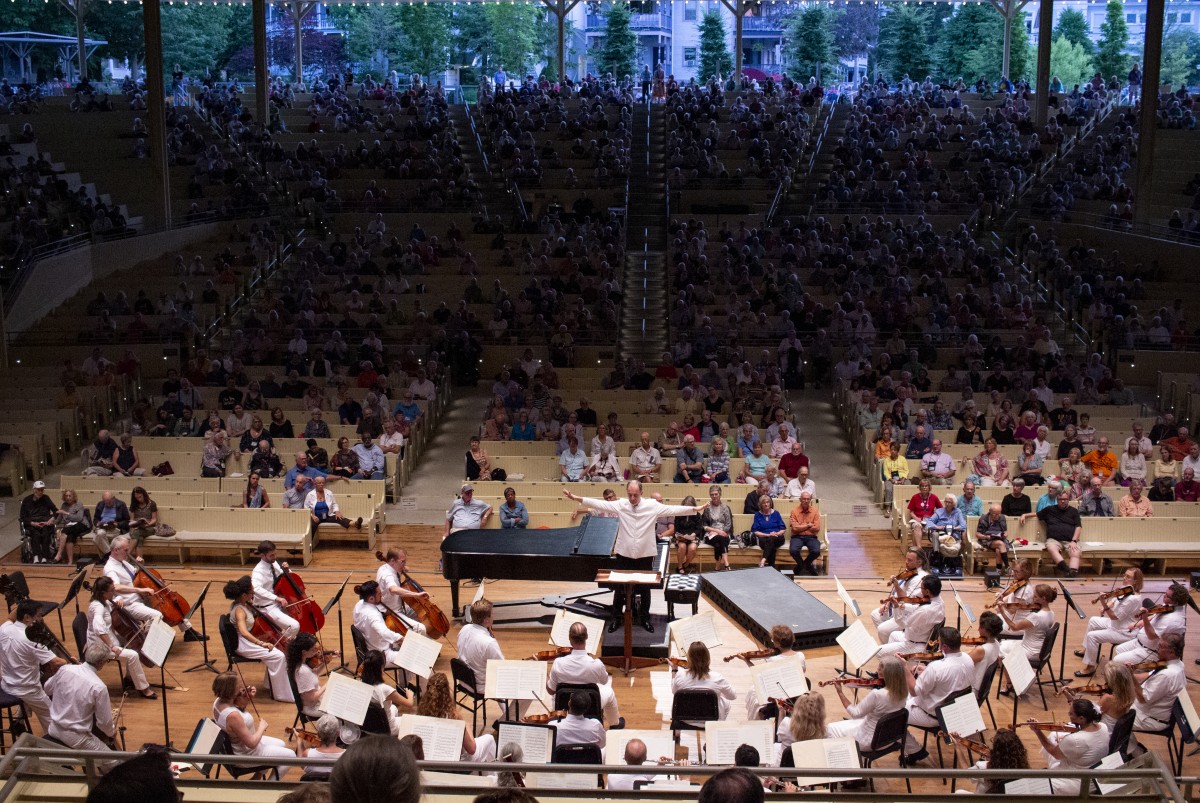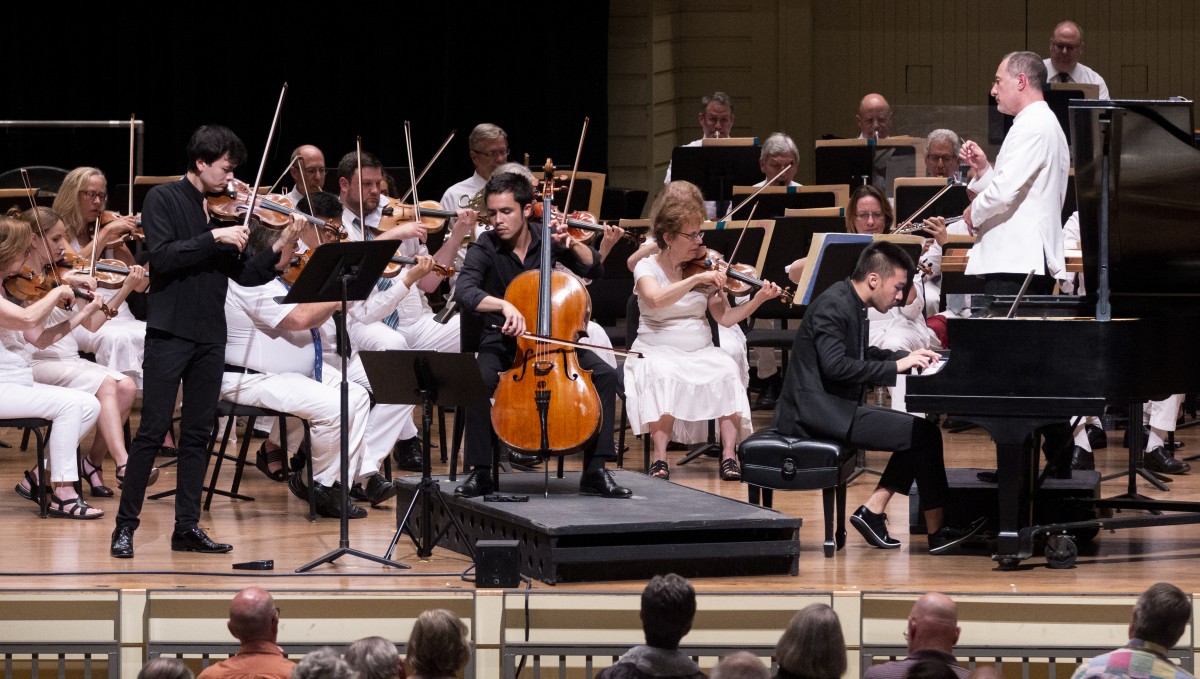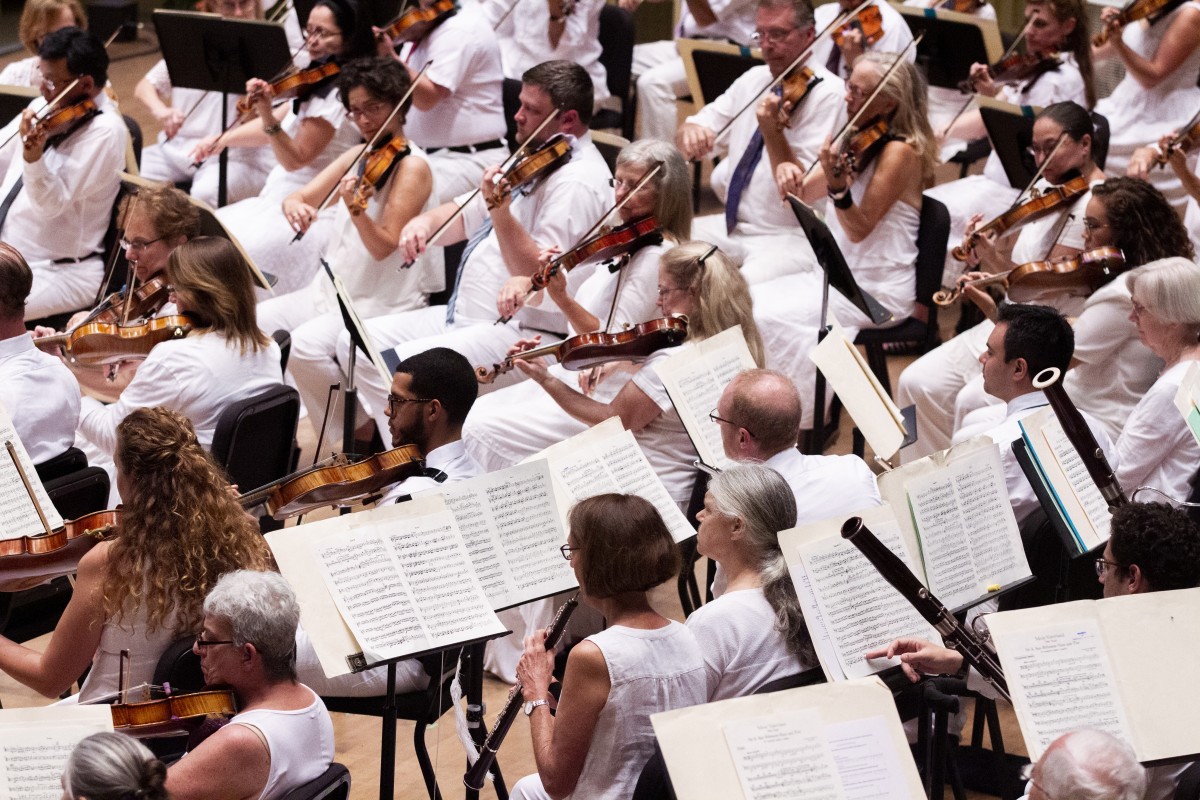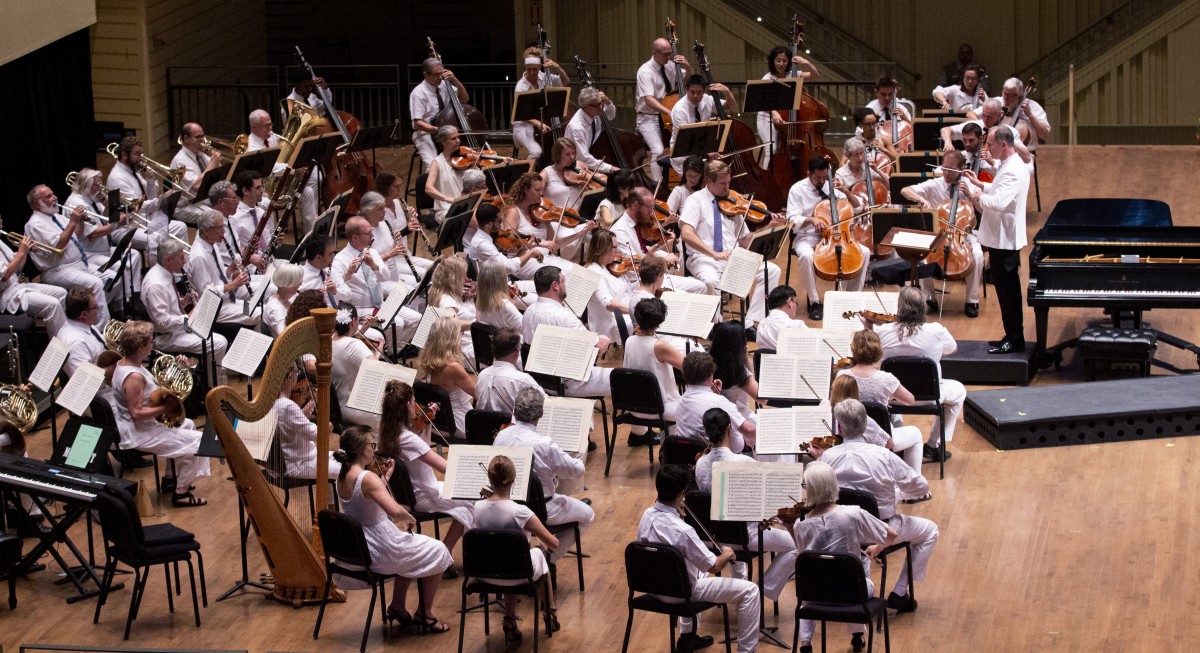Internationally-renowned conductor William “Bill” Eddins is coming home to Chautauqua.
Eddins will conduct the Chautauqua Symphony Orchestra at 8:15 p.m. tonight, July 11, in the Amphitheater in a concert featuring three diverse pieces: Duke Ellington’s reimagining of Pyotr Tchaikovsky’s The Nutcracker Suite, Op. 71a, French composer Maurice Ravel’s “Le tombeau de Couperin” and George Gershwin’s “Rhapsody in Blue.”
Eddins first set foot in Chautauqua Institution 41 years ago, when he watched his parents perform with the Buffalo Philharmonic Chorus. Ever since then, he said, Chautauqua has been a major part of his life.
“I can remember walking in and saying, ‘Wow, what is this place?’ ” Eddins said. “Chautauqua has been woven into the fabric of my life for the past 41 years. … For me, it’s more like coming home than anything else.”
Eddins is music director emeritus of the Edmonton Symphony Orchestra. He frequently makes appearances as guest conductor with orchestras across the world — including the CSO.
One of Eddins’ favorite pieces to conduct is Gershwin’s “Rhapsody in Blue.”
“The ‘Rhapsody’ has been a calling for me for the last 40-odd years; I’ve played it around the world, and it’s one of my absolute favorite things to do,” Eddins said. “I could probably talk for six or seven hours about it. There are maybe two or three pieces that have had just a ridiculous impact on my life, and this is one of them.”
Eddins said his interest in the piece began when he heard Paul Whiteman’s version. Whiteman, often referred to as the “king of jazz,” commissioned the music with his jazz orchestra in mind. However, Gershwin later wrote an orchestra version of the piece — a version that is far better-known than the original jazz version, according to Eddins.
“That album changed my life,” Eddins said. “I remember getting it and putting it on the record player, and my jaw just dropped. I heard ‘Rhapsody in Blue’ the way it’s meant to be heard for the first time. I’d never realized that I was searching for this, but it suddenly made sense to me.”
Eddins said the jazz version has a light, joyful tone that differentiates it from the better-known orchestral version.
“The Whiteman version is a completely different experience,” Eddins said. “It’s how the jazz bands were in the 1920s and early ’30s, and it has a lot more character. I think it’s a lot more fun, it’s a lot livelier, it’s a lot quirkier, and I think it really captures the essence of what George Gershwin was going after when he wrote this amazing piece.”
The concert will open with Ellington’s jazzy “The Nutcracker Suite.” While Tchaikovsky wrote the original ballet in the late 19th century, Ellington, an American jazz composer, reinterpreted the suite for jazz orchestra in 1960.
Eddins said he often plays the original Nutcracker Suite alongside Ellington’s version to illuminate the two composers’ talents.
“It highlights both Tchaikovsky’s genius and Ellington’s genius — it’s great music in either scenario,” Eddins said. “In many ways they’re totally different, but that same thread of genius comes through the music so clearly. It’s very joyful, and it’s one of those things I think people really enjoy hearing side by side.”
The concert will also feature Ravel’s “Le tombeau de Couperin,” a 1920 Baroque-style composition. Ravel wrote the piece as a memorial to several friends who died fighting in World War I. Eddins said the piece is known for its beauty.
“Any chance you get to program Ravel as a musician, you should, because he was a genius,” Eddins said. “It’s utterly, wonderfully beautiful … and beautifully orchestrated by (Ravel).”
The three compositions come from different composers, genres and countries. However, Eddins said they have one surprising characteristic in common: they all premiered well within one lifetime.
“It shows the amazing fluidity of music; we can go from this ‘Nutcracker,’ that everyone knows, all the way through ‘Rhapsody in Blue’ on the other side of the world,” Eddins said. “You could’ve easily heard the premiere of all these pieces within your lifetime and have a couple decades left to check other things out. It’s astounding, it’s amazing and it’s wonderful.”








